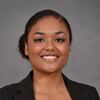Since the pandemic closed schools in March and virtual learning became the norm, Kevin Rudiger's son spends all day staring at a computer screen.
His sixth grader, Isaac, attends Hosford Middle School in Southeast Portland. Portland Public Schools provides Isaac and its nearly 50,000 other students with Chromebooks and online resources such as PDF documents.
Rudiger, 47, says his son finds switching back and forth from PDFs and other online materials to worksheets challenging. They'd both prefer less screen time and access to physical textbooks—which Isaac and his classmates do not have.
"His mom and I often feel like having a textbook would be helpful," says Rudiger. "All resources are online, and we're left poking around YouTube trying to find something that explains this question in biology."
But Rudiger says Hosford isn't distributing textbooks. Although he's requested textbooks, the school staff, including Principal Caitlin Klenz, pointed him to online alternatives.
Across the district, families and teachers are struggling to adjust to life without textbooks. In a year of unparalleled challenges for students and their teachers, PPS's textbook policy has added an additional layer of difficulty for some families—particularly for those with students who learn best with the aid of an old-fashioned hardcover book or have additional learning needs.
Chris Riser teaches eighth grade social studies at Ockley Green Middle School in North Portland. He says that although teachers are often skeptical of textbooks, families should have access to them.
"Everybody's rhetoric is that 'care comes first,' but when we actually say, 'Well, OK, I'm going to take care of this kid by delivering this kid a book,' now you're out of compliance and that's against the rules," Riser says. "The district is never going to do the right thing, but schools and educators could be doing what they need to do."
PPS spokeswoman Karen Werstein says the textbooks at Hosford don't match the online instruction the school is providing.
"We are in comprehensive distance learning so all of our curricula must be online right now," Werstein wrote in an email.
Werstein adds that the district is attempting to accommodate concerns about screen time. "Hosford (and all of our schools) are providing online information, readings, and other materials in paper packets for families who have asked for that understanding not everyone can be (or maybe doesn't want to be) online all day," she says.
The district's pandemic policy on textbooks appears to be patchwork. There's no single set of rules about who gets textbooks—and, in some cases, parents don't know if the books even exist.
"I know different schools are doing different things depending on their class offerings," says Werstein, "and it varies widely by elementary, middle and high school."
The district's website provides some information about the status of textbooks for 81 schools. For some courses, including social studies for middle schoolers like Isaac Rudiger, the website says "digital licenses have been purchased and printed notebooks will not be delivered to schools." For many courses, however, the status of textbooks is listed as "unknown."
Teachers, who faced a crash course in how to deliver curricula to their students online, say they find the lack of clarity and conflicting policies around school supplies contradictory and limiting.
Elizabeth Thiel, president of the Portland Association of Teachers, says her union sent a list of proposals to the district in August listing materials—including books—that students would need to be successful. Thiel says the district did not respond, and the union has continued to push that point during current contract negotiations.
"One of our asks in bargaining is asking for textbooks, art supplies, basic school supplies," Thiel says.
Werstein says because PAT and PPS are currently negotiating a contract, she is unable to comment.
Even when books are made available, they aren't always easy to obtain.
Don Rose, an English teacher at Jefferson High School, says teachers are not allowed to deliver supplies, including books, to students' homes. At his high school, families can pick up school materials only during the lunch pickup window, which is open for two hours twice a week.
"You put your job at stake if you deliver what a kid needs," Rose says. "Making text bigger, highlighting and underlining actually help kids with complex texts, especially kids who are learning English as a second or third language. It makes it easier to see that rather than being on a screen."
Nancy Arteaga, a sixth grade language arts teacher at Lane Middle School in the Brentwood-Darlington neighborhood, says her students didn't receive basic supplies until 12 weeks into the school year. She says it's unclear why or who is to blame.
"Is it Lane? Is it the district itself? There's not one central thing, it's all left to interpretation." Arteaga says. "I just think it's upsetting that getting pencils and any materials to students isn't happening. We were told students would get all these resources and have access to things, and then when those weeks came around, students got nothing."
Rudiger worries the district's textbook policy has deprived students of a basic learning tool and shifted responsibility onto parents, who may lack the time, resources or skills to help. "Middle school for a lot of kids is a step up in academic intensity," Rudiger says. "My personal take is, I'm not a trained educator."
Without books for Isaac, he's pondering another solution. For now, he's settled on one: a larger computer monitor.

